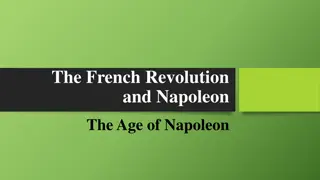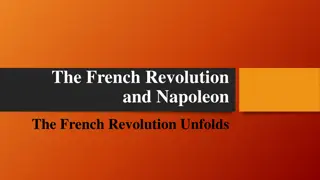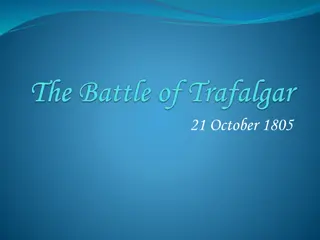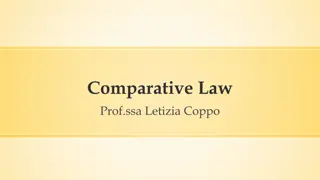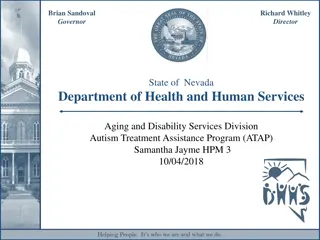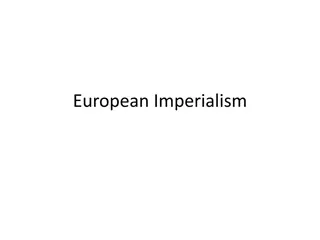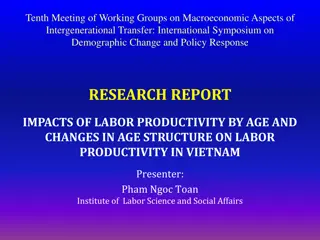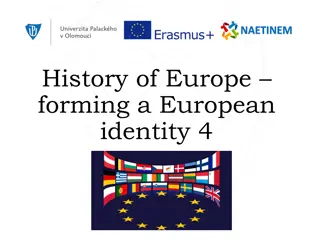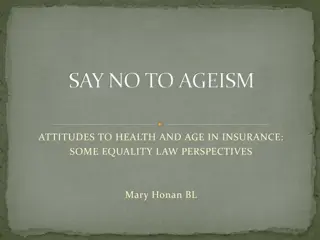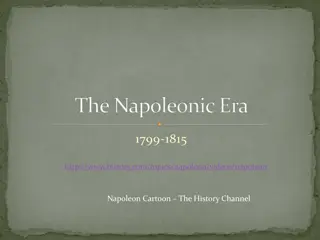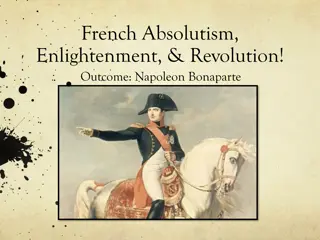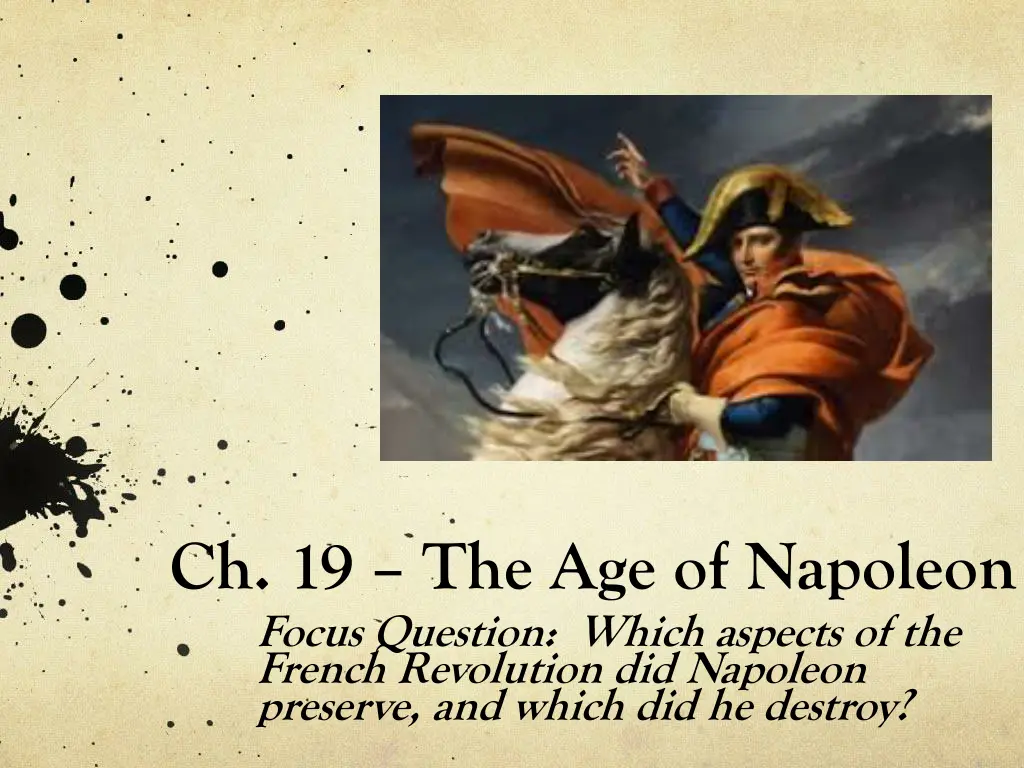
Napoleon's Impact on the French Revolution and Its Legacy
Explore how Napoleon preserved some aspects of the French Revolution while destroying others. From his rise to military career, domestic policies, influence on the Catholic Church, new laws, to bureaucratic changes, Napoleon's rule reshaped France significantly.
Download Presentation

Please find below an Image/Link to download the presentation.
The content on the website is provided AS IS for your information and personal use only. It may not be sold, licensed, or shared on other websites without obtaining consent from the author. If you encounter any issues during the download, it is possible that the publisher has removed the file from their server.
You are allowed to download the files provided on this website for personal or commercial use, subject to the condition that they are used lawfully. All files are the property of their respective owners.
The content on the website is provided AS IS for your information and personal use only. It may not be sold, licensed, or shared on other websites without obtaining consent from the author.
E N D
Presentation Transcript
Ch. 19 The Age of Napoleon Focus Question: Which aspects of the French Revolution did Napoleon preserve, and which did he destroy?
The Rise of Napoleon Son of an Italian lawyer from the Florentine nobility Studied in the French town of Autun, where he learned to speak French. Read the works of the philosophes, especially Rousseau. Studied Alexander the Great, Charlemagne, and Frederick the Great.
Napoleons Military Career Saved the National Convention in October of 1795 from a Parisian mob and was promoted to the rank of major general. Charismatic leader that saw himself as a military genius. Attempted to take Egypt from the British, only to abandon his defeated army and return to participate in the coup d etat in 1799.
Napoleon in Control Constitution of the coup established a bicameral legislative assembly elected indirectly to limit elections. Article 42 the decision of the First Consul shall suffice. This gave Napoleon control over the entire executive authority of the government. 1802 Napoleon named consul for life. 1804 France returned to monarchy with Emperor Napoleon I. Brought stability to France but also far more tyrannical rule than before the old order.
The Domestic Policies of Emperor Napoleon Napoleon often claimed that he preserved the gains of the Revolution for the French people. True or false?
Napoleon and the Catholic Church 1801 Napoleon reached an agreement (Concordat) with the Catholic Church, recognizing the it as the majority religion in France. Napoleon was not very religious. More of a rationalist. Muslim in Egypt, Catholic in France The Pope agreed not to raise the issue of confiscated land/property.
A New Code of Laws Civil Code known as the Code Napoleon preserved most of the revolutionary gains such as: -equality of all citizens before the law -right of individuals to choose their profession -religious toleration -abolition of serfdom and feudalism Women s rights however, were limited. Divorce, patriarchy, and property.
The French Bureaucracy Napoleon eliminated the locally elected assemblies that were created during the Revolution. Prefects were used to supervise local governments. Tax collection became much more efficient. Aristocracy was now based more on merit and less on family.



